Tuning linear SVMs
Support Vector Machines in R

Kailash Awati
Instructor
Linear SVM, default cost
library(e1071)
svm_model <- svm(y ~ .,
data = trainset,
type = "C-classification",
kernel = "linear",
scale = FALSE)
# Print model summary
svm_model
Call:
svm(formula = y ~ .,
data = trainset,
type = "C-classification",
kernel = "linear",
scale = FALSE)
Parameters:
SVM-Type: C-classification
SVM-Kernel: linear
cost: 1
gamma: 0.5
Number of Support Vectors: 55
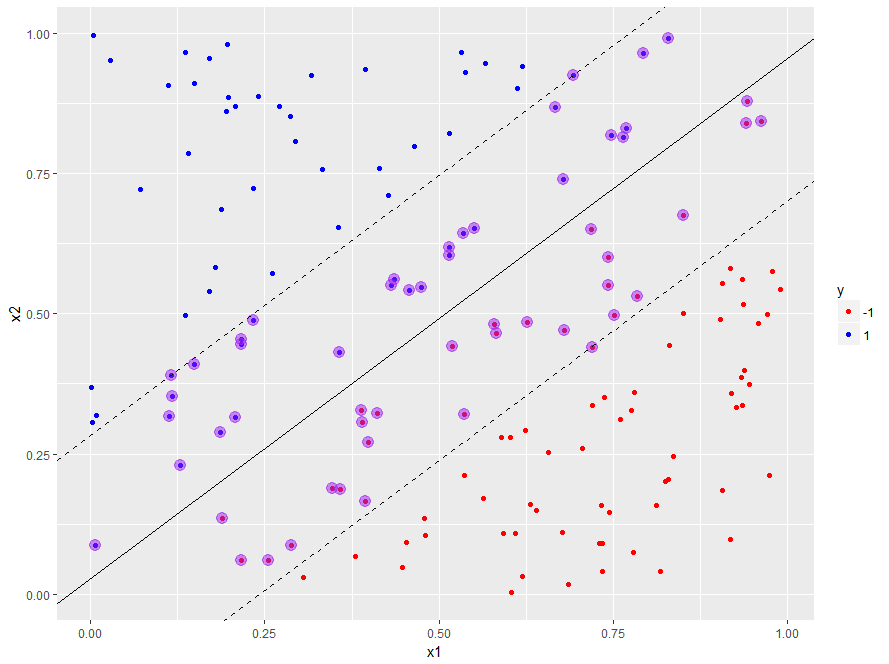
Linear SVM with cost = 100
library(e1071)
svm_model <- svm(y ~ .,
data = trainset,
type = "C-classification",
kernel = "linear",
cost = 100,
scale = FALSE)
# Print model summary
svm_model
Call:
svm(formula = y ~ .,
data = trainset,
type = "C-classification",
kernel = "linear",
cost = 100,
scale = FALSE)
Parameters:
SVM-Type: C-classification
SVM-Kernel: linear
cost: 100
gamma: 0.5
Number of Support Vectors: 6
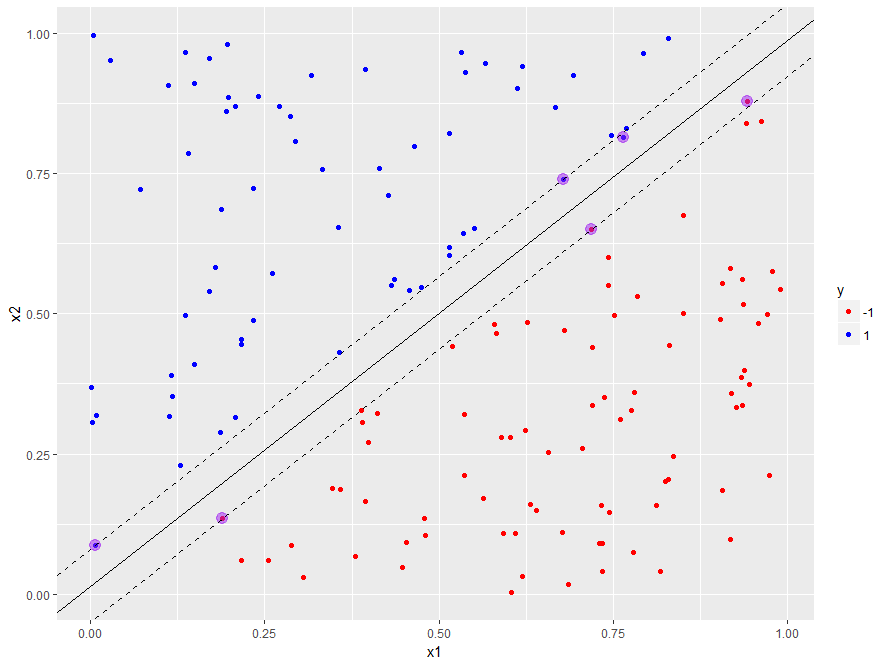
Implication
- Can be useful to reduce margin if decision boundary is known to be linear
- ...but this is rarely the case in real life
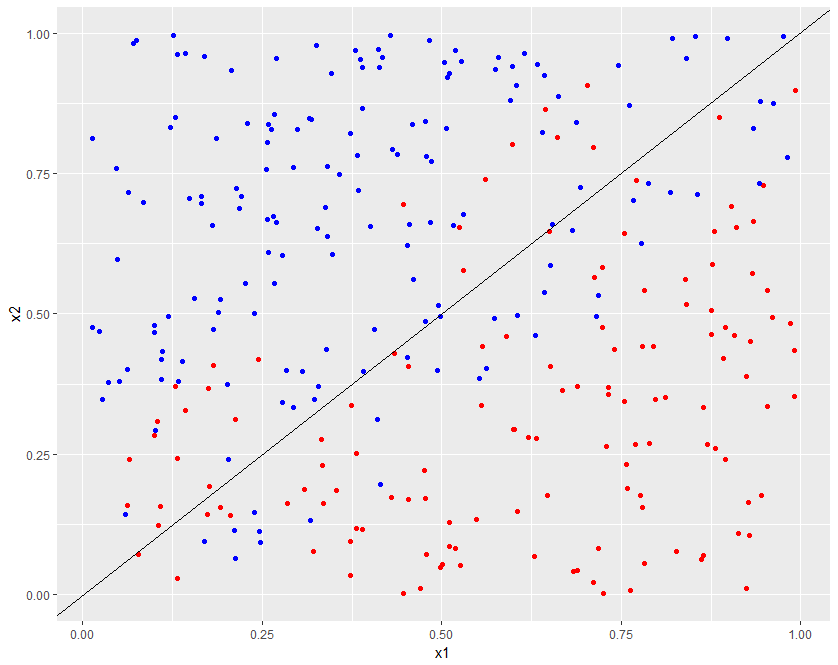
Nonlinear dataset, linear SVM (cost = 100)
- Build cost=100 model using training set composed of 80% of data
# Build model
library(e1071)
svm_model<- svm(y ~ .,
data = trainset,
type = "C-classification",
kernel = "linear",
cost = 100,
scale = FALSE)
- Calculate accuracy
# Train and test accuracy
pred_train <- predict(svm_model, trainset)
mean(pred_train == trainset$y)
0.8208333
pred_test <- predict(svm_model, testset)
mean(pred_test == testset$y)
0.85
- Average test accuracy over 50 random train/test splits: 82.9%
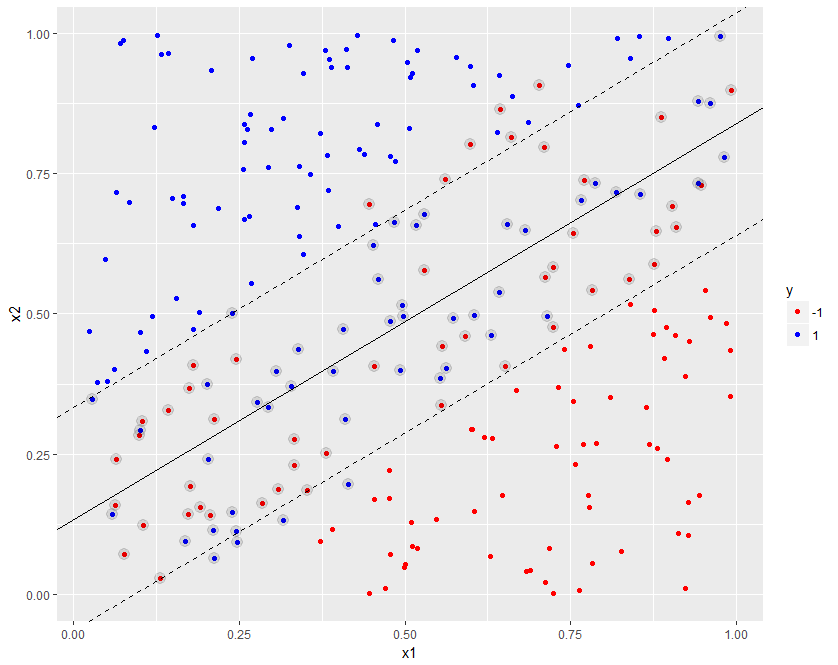
Nonlinear dataset, linear SVM (cost = 1)
- Rebuild model setting cost =1
# Trainset contains 80% of data
# Same train/test split as before.
# Build model
svm_model <- svm(y ~ .,
data = trainset,
type = "C-classification",
kernel = "linear",
cost = 1,
scale = FALSE)
- Calculate test accuracy
# Test accuracy
pred_test <- predict(svm_model, testset)
mean(pred_test == testset$y)
0.8666667
- Average test accuracy over 50 random train/test splits: 83.7%
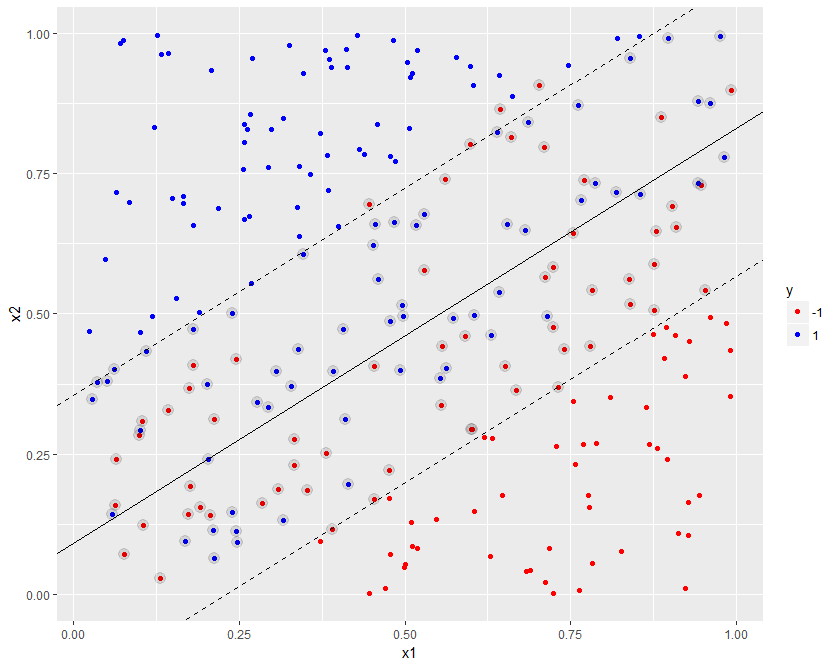
Time to practice!
Support Vector Machines in R

